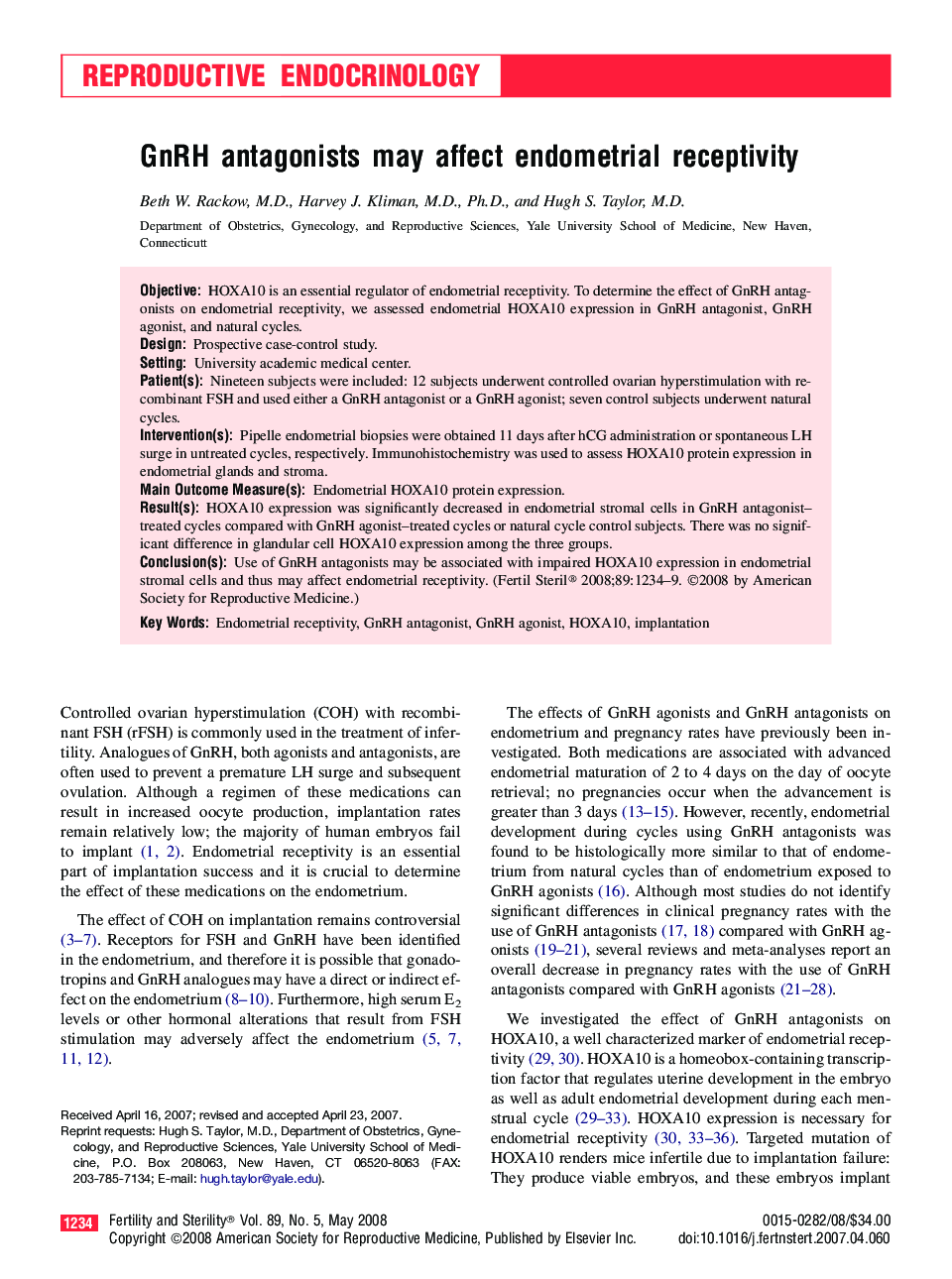| Article ID | Journal | Published Year | Pages | File Type |
|---|---|---|---|---|
| 3941723 | Fertility and Sterility | 2008 | 6 Pages |
ObjectiveHOXA10 is an essential regulator of endometrial receptivity. To determine the effect of GnRH antagonists on endometrial receptivity, we assessed endometrial HOXA10 expression in GnRH antagonist, GnRH agonist, and natural cycles.DesignProspective case-control study.SettingUniversity academic medical center.Patient(s)Nineteen subjects were included: 12 subjects underwent controlled ovarian hyperstimulation with recombinant FSH and used either a GnRH antagonist or a GnRH agonist; seven control subjects underwent natural cycles.Intervention(s)Pipelle endometrial biopsies were obtained 11 days after hCG administration or spontaneous LH surge in untreated cycles, respectively. Immunohistochemistry was used to assess HOXA10 protein expression in endometrial glands and stroma.Main Outcome Measure(s)Endometrial HOXA10 protein expression.Result(s)HOXA10 expression was significantly decreased in endometrial stromal cells in GnRH antagonist–treated cycles compared with GnRH agonist–treated cycles or natural cycle control subjects. There was no significant difference in glandular cell HOXA10 expression among the three groups.Conclusion(s)Use of GnRH antagonists may be associated with impaired HOXA10 expression in endometrial stromal cells and thus may affect endometrial receptivity.
